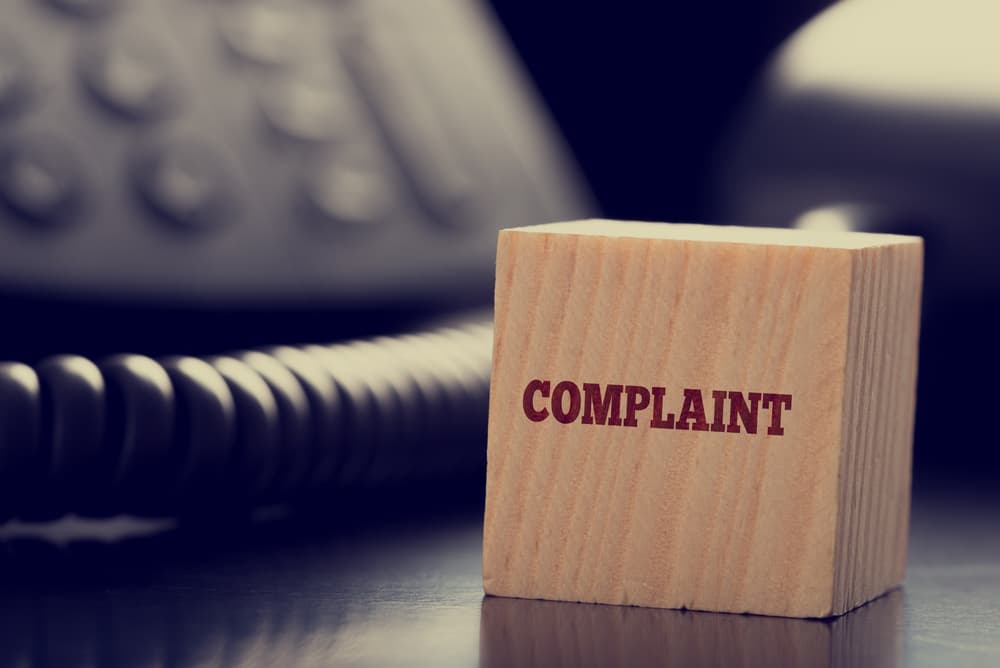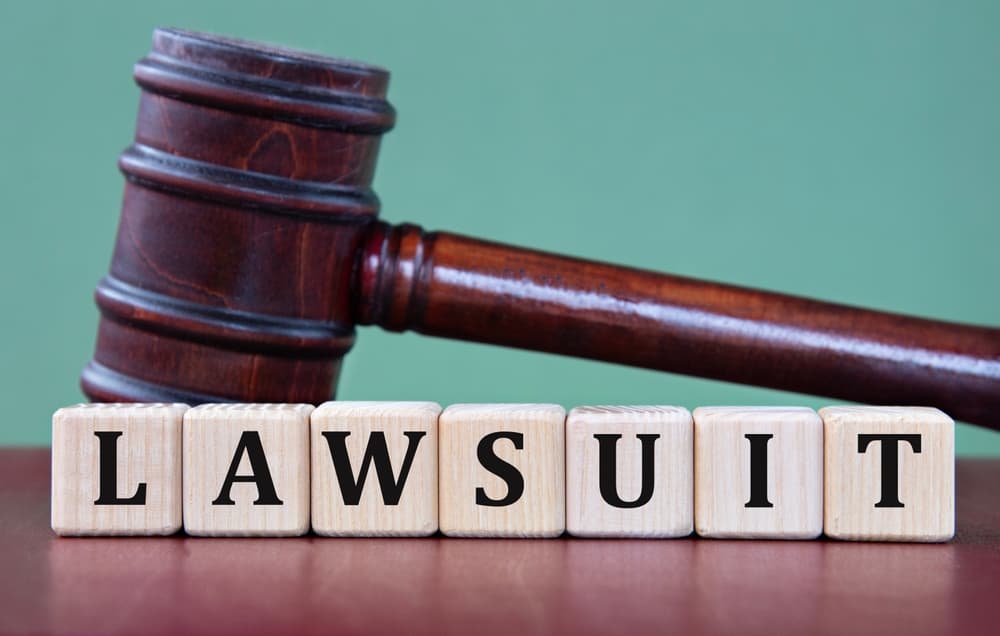Reporting sexual abuse on a college or university campus is an act of courage—and a first step toward accountability and healing. Sadly, sexual misconduct remains a persistent issue in higher education.
According to the most recent federal data, approximately 19% of undergraduate women report experiencing nonconsensual sexual contact by physical force or inability to consent during their college years as of 2023–2024.
While statistics can’t capture each survivor’s experience, they underscore a crucial reality: reporting matters.
When a survivor contacts Title IX, campus safety, or law enforcement, they initiate a process that includes both support services and procedures meant to hold perpetrators and institutions accountable.
At Horowitz Law, we understand how difficult this step is. You may feel anxious about being believed, worry about retaliation, or fear reopening wounds. And yet, reporting can help secure interim protections like no-contact orders, academic accommodations, and mental-health support. It also triggers an institutional obligation—under federal law—for schools to act.
If you’ve reported or are weighing whether to report sexual misconduct on campus, our school & university sexual abuse lawyers are here to help. Call us at (954) 641‑2100 to review your rights and explore next steps.
What to Expect When You Report Campus Sexual Abuse
When you decide to report sexual abuse—whether to a Title IX coordinator, campus police, or local law enforcement—there are several steps you can expect. While the exact process varies between institutions and jurisdictions, the following elements are widely applicable:
Initial Disclosure and Documentation
Once you speak to a university official (such as a Title IX coordinator) or campus law enforcement, you’ll usually provide a summary of what occurred. This may include when and where the incident happened, as well as any immediate evidence—text messages, photos, or communication.
The person taking your report should document it, giving you a copy or a confirmation of submission.
Choices of Action
You will typically be informed that you can proceed through one or more of these avenues:
- Administrative complaint under Title IX (for investigating university policy violations)
- Criminal complaint with campus police or local police
- Civil legal action through a private attorney or civil court
Choosing to file a Title IX complaint does not block filing criminal charges, though survivors don’t have to pursue both simultaneously. We encourage survivors to make decisions at their own pace, but the institution must act quickly to address reported hazards under the Clery Act and Title IX.
Supportive Measures
Most colleges are required by Title IX to provide supportive measures as soon as a report is filed, even before any investigation outcome. These may include no-contact directives, adjusting class schedules or housing, and referrals to confidential campus resources (e.g., counseling or health services).
Supportive measures help reduce stress and shield survivors from further harm while investigations progress.
Civil Inquiry from Horowitz Law
We help by reviewing whether your school provided the required notices and protections. A failure to follow mandated procedures can form the basis of a civil claim against the institution, separate from any internal or criminal process.
The Title IX Investigation Process
Title IX is a federal civil rights law that prohibits sex-based discrimination at federally funded educational institutions. Since the 2021–2024 regulatory updates, colleges are required to follow a structured process. Here’s how that typically plays out:
1. Formal Complaint or Report Intake

Once you make a report, the school should promptly notify both you and the accused in writing of the allegations, the policy under which they will be investigated, and the range of possible disciplinary outcomes. You may be asked to submit a “formal complaint.” If you decline to sign, the university may still proceed if it deems the issue a threat to campus safety.
2. Supportive Measures Continued
Institutions must continue supportive measures during the full investigation, ensuring interim protection for all parties.
3. Investigation Phase
A neutral investigator (internal staff or contracted expert) will gather information: interviews with you, witnesses, and the accused, review of documents, texts, location logs, and any other relevant data. Survivors should be informed in advance of interviews and can request to have an advisor or advocate present.
4. Review and Hearing
Once the investigator compiles a report, each party has a chance to review and respond. At some schools, the process goes to a live or virtual hearing panel where both sides may present witnesses and ask questions. These are typically moderated and follow strict procedural rules to ensure fairness.
5. Decision and Sanctions
The decision-maker(s) evaluate the information to determine if the institution’s standard of proof has been met, usually “preponderance of the evidence” (more likely than not). If so, sanctions against the accused may range from suspension to expulsion.
6. Appeals Process
Most Title IX policies include appeal provisions for either party, typically for procedural errors or new evidence. If an appeal is granted, the case may be remanded for reinvestigation or rehearing.
Takeaway: Survivors have options at every stage. You’re never required to continue if it becomes too overwhelming. Your priorities — safety, anonymity, and pursuing justice — matter. Our team at Horowitz Law monitors compliance with federal regulations and ensures institutions adhere to required protocols.
Survivors’ Rights Under Federal and State Law
Campus sexual abuse falls under multiple overlapping legal regimes designed to protect your rights. Understanding these frameworks helps you hold institutions and individuals accountable:
Title IX of the Education Amendments (1972)
This federal law requires that institutions receiving any federal funding investigate and address sex discrimination and sexual violence. Title IX guarantees survivors:
- Access to supportive measures and accommodations
- An investigation free from bias
- Equal opportunity to present evidence and witnesses
- Written notice of outcomes and appeal options
Clery Act
Requires colleges to annually publish crime statistics (including sexual assault), maintain a Daily Crime Log, and issue timely warnings when there’s a serious or ongoing threat. Survivors are entitled to transparency and risk notifications.
Family Educational Rights and Privacy Act (FERPA)
School disciplinary records are typically protected, meaning survivors won’t see the contents of the accused’s file. But survivors do have access to their own records and the ability to request certain documents, such as the Final Investigation Report or Notification of Outcome.
Florida State Law
As of 2025, Florida law reinforces the rights of student survivors. Florida requires:
- Institutions to adopt Title IX protocols
- Jurisdiction over off-campus incidents if they involve student life or campus-sponsored programs
- Compliance with Clery mandates for law enforcement training and data
Takeaway: You’re protected at every turn—whether the process is internal, criminal, or civil. If you believe your institution failed to uphold its responsibilities, civil claims may be possible.
Confidentiality and Retaliation Concerns

Playing through reporting—especially in tight-knit campus communities—can raise valid concerns about confidentiality and retaliation. Here’s what survivors need to know:
Confidential vs. Mandated Reporters
- Confidential resources include counselors, therapy staff, and campus health centers. Anything you say remains private unless you provide written consent or indicate imminent harm.
- Mandated reporters, such as Title IX staff and campus law enforcement, must share reports with designated officials, though they are still bound to confidentiality policies.
Protections Against Retaliation
Under Title IX and Clery, it’s unlawful for schools to retaliate against survivors, whether through academic consequences, hostile educational conditions, or social exclusion. If you believe you’re being retaliated against (e.g., sudden grade drops, social ostracization, increased scrutiny), that behavior must be reported and is actionable.
What You Can Do:
- Document any retaliatory actions or communications immediately
- Inform the Title IX office in writing of your concerns
- Contact your attorney to explore legal options if the school fails to act
Takeaway: You have legal rights to privacy and protection. If your school fails to keep your report confidential or allows retaliation, you may be able to hold them legally accountable—and we will help.
The Emotional Toll: What Survivors Often Face After Reporting
Reporting sexual abuse is not just a procedural step—it’s an emotional journey that can take a significant toll. Every survivor’s experience is unique, but many share similar emotional and psychological effects along the way:
- Loss of privacy: Once you report, details may become part of an institutional file or hearing, something that can feel overwhelming and public.
- Fear of not being believed: Some survivors worry that their claims will be dismissed or discredited.
- Isolation and peer dynamics: You may feel isolated from friends, classmates, or teams, especially if they side with the accused.
- Academic strain: Concentration, grades, or class attendance may suffer due to stress, trauma, or the demands of the process.
- Mental health fluctuations: Anxiety, depression, PTSD triggers, self-doubt, and flashbacks are common, and these can escalate during investigations or hearings.
Recognizing the emotional toll is critical. That’s why Title IX requires institutions to offer support services such as counseling and mental-health referrals at no cost. But campus resources don’t always feel tailored or adequate.
We routinely work with expert therapists, victim-advocates, and trauma-informed staff as part of our holistic support for survivors.
When the School Fails to Act: What Legal Options You May Have
What if, after reporting, you find your school did little or nothing? While institutions have legal obligations, enforcement can fall short. If your school:
- Ignores or delays your report
- Fails to investigate or issue interim measures
- Implements an unfair or biased process
- Allows retaliation or harassment
You may have grounds for a civil lawsuit under Title IX, negligent care, or regulatory violations. We look into:
- Title IX Claims – You can sue for failure to respond appropriately to sexual violence, seeking injunctive relief (e.g., better procedures), damages for emotional distress, and corrective institutional policy.
- Negligence or Premises Liability – Particularly where your college controlled or maintained dangerous environments, such as poorly lit parking lots or uncontrolled social events.
- Contract Breach – If your school violated its own published policies, such as guaranteed due process or confidentiality.
Before filing, we meticulously assess:
- Evidence: Dates, records, witness statements
- Institutional history: Repeat complaints or prior Title IX audits
- Your losses: Emotional trauma, academic ramifications, future opportunity costs
These claims help ensure schools take sexual misconduct seriously and provide a meaningful path toward justice.
Pursuing Civil Litigation After Campus Sexual Abuse

Civil litigation allows survivors to seek justice beyond disciplinary or criminal channels. Here's how a lawsuit in civil court may differ and what it can address:
Scope of Civil Claims:
- You may file claims against individuals (e.g., the abuser), the institution, or both
- Claims may include negligence—failure to protect you—and Title IX civil claims
- Cases may seek compensatory damages (medical costs, therapy, lost earning capacity) and sometimes punitive damages for egregious conduct
How It Works:
- Pre-filing Investigation – We gather evidence, talk to witnesses, and consult experts (mental-health professionals, safety experts)
- Filing the Complaint – Initiates the lawsuit and details the path to justice, citing legal grounds
- Discovery – Both sides share evidence, depositions are taken, and expert reports support your case
- Pleadings and Motion Practice – We fight to prevent dismissal or undue delays
- Settlement Negotiations – Most cases settle before trial, sometimes confidentially
- Potential Trial – If no resolution, we prepare for court, where a judge or jury hears your experience
- Appeals – If needed, we pursue appeals, but most cases are settled long before
Takeaway: Civil litigation offers an opportunity to reclaim your story, secure accountability, and rebuild after trauma. We walk with survivors—step by step.
Why Some Survivors Choose Not to Report—And Why That’s Okay
Reporting sexual abuse is deeply personal. Many survivors opt not to report—or to delay—for reasons that have nothing to do with fault or shame:
- Fear of social consequences, such as ostracism or campus backlash
- Concern over confidentiality, especially on small campuses
- District coverage of the abuser makes cases complicated
- Limited trust in institutional processes
Under Florida law, survivors have extended timelines to file claims under “delayed discovery” rules. That means when you’re ready—whether immediately or years later—you still have legal avenues available.
There is no shame or penalty in stepping forward when it feels safe and right. You deserve to be heard on your own timeline.
How We at Horowitz Law Help College Sexual Abuse Survivors
At Horowitz Law, we center all our work around survivors. We offer:
- Trauma-informed consultations—we meet on your terms (in person, video, or phone) and adapt to your comfort level
- Case strategy tailored to you—whether you want to pursue administrative, criminal, or civil routes, or all three
- Thorough regulatory compliance reviews—ensuring schools follow Title IX, Clery, and state guidance
- Coordination with mental-health experts—so you receive advocacy and emotional support during legal steps
- Transparent communication—you always know where things stand, what to expect, and what’s at stake
We bring our experience to each case without exaggeration. We don’t promise results, but we do promise we will stand with you, review every possible option, and advocate for what you need to heal.
Your Next Steps: Reporting Is Just the Beginning—You Are Not Alone
If you've reported—or are thinking about reporting—sexual abuse on campus, remember this:
- You are entitled to respectful treatment and basic protections under Title IX.
- The legal landscape offers multiple pathways—administrative, criminal, and civil—to seek accountability.
- Choosing whether and how to report is your decision. You control your timeline.
- You shouldn’t navigate this alone.
We’re ready to help you explore your options—when and if you’re ready—starting with a private, no-pressure consultation. Reach out today at (954) 641‑2100 to talk confidentially about your situation.